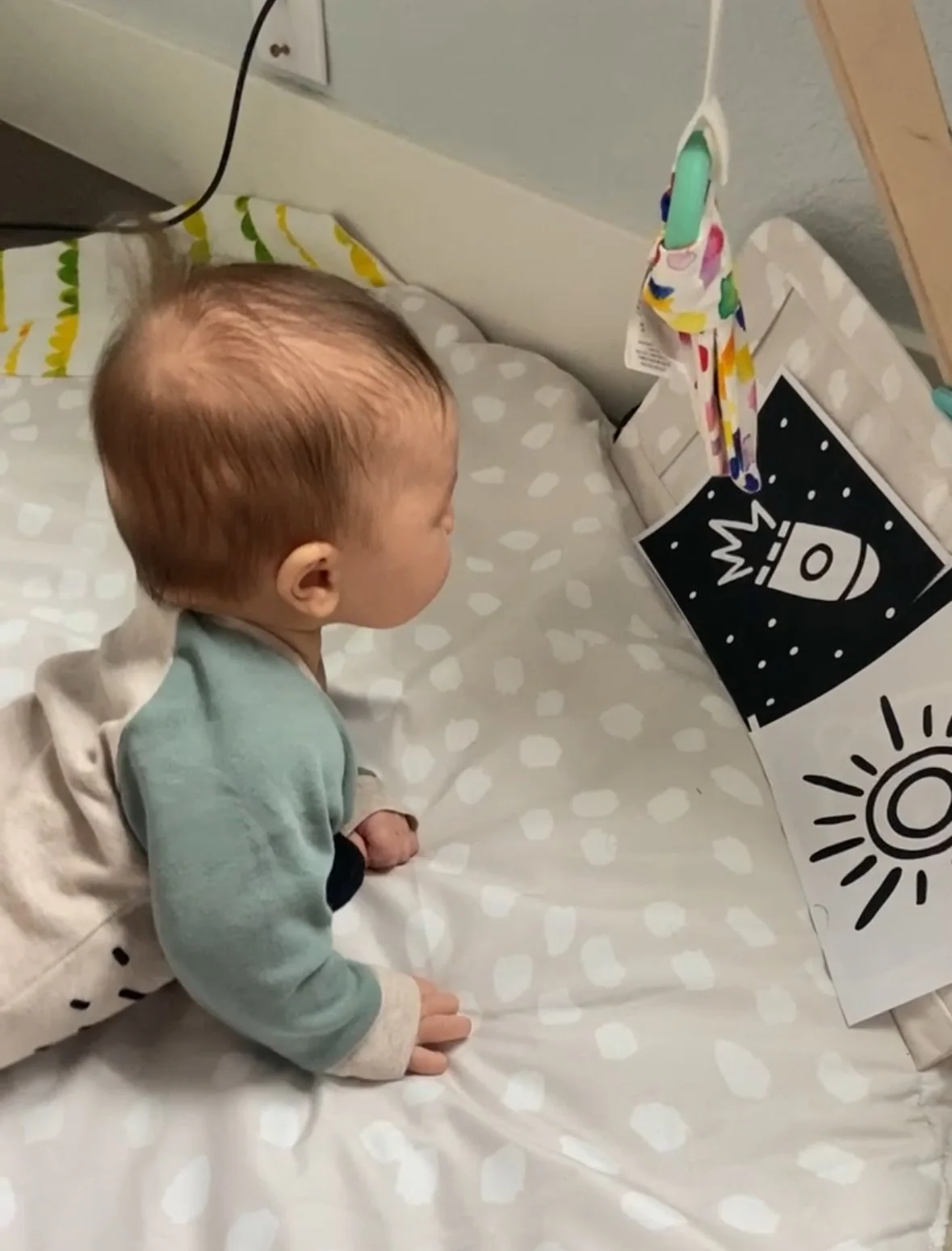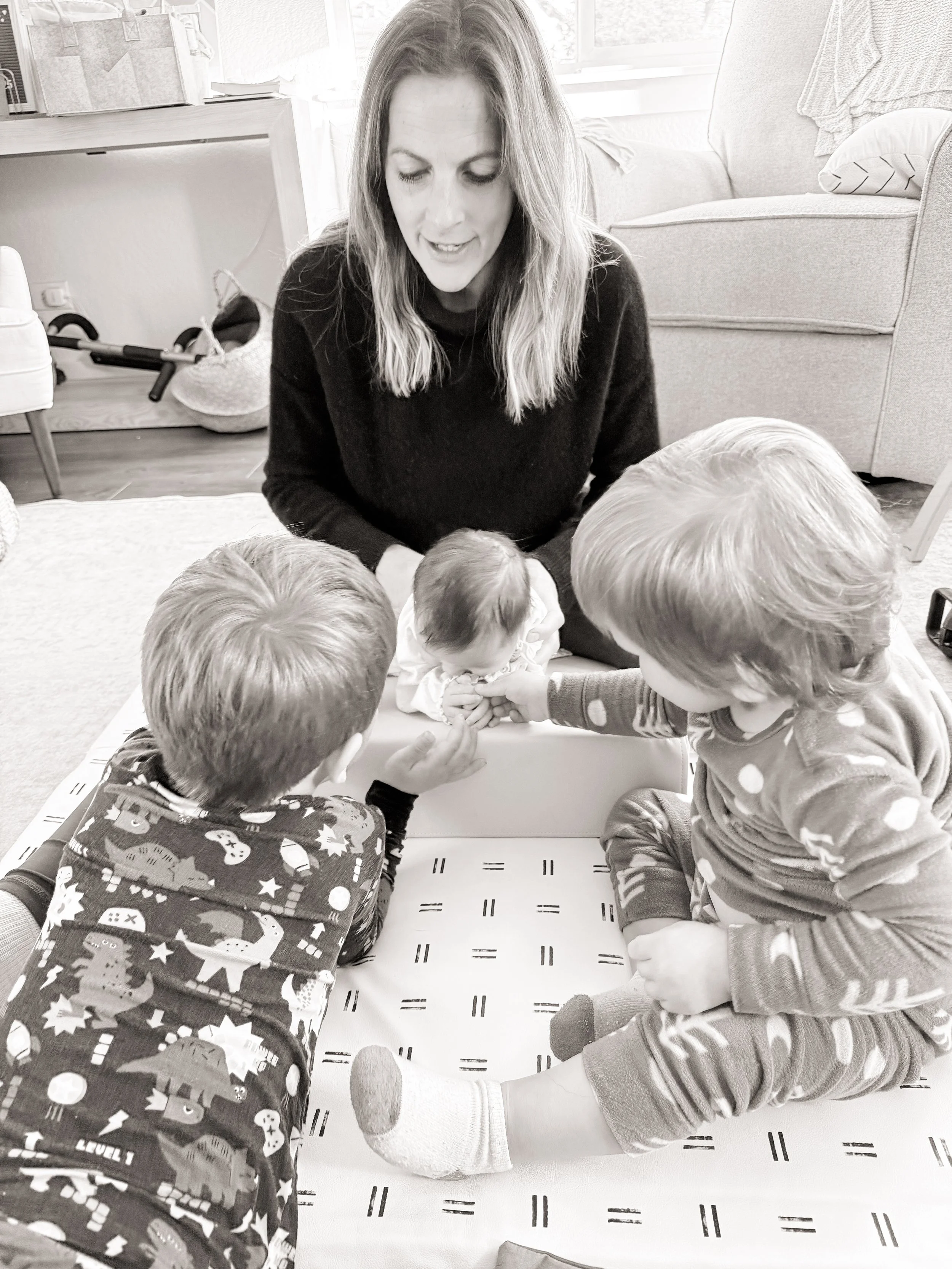Blog
PT-Recommended Holiday Toys That Boost Motor Skills
Explore Dr. Nicole’s PT-approved holiday gift guide featuring toys that support strength, balance, crawling, walking, and motor development for babies, toddlers, and young children.
Why Movement Matters in Early Childhood Classrooms: Building Strong Foundations Through Play
Early movement is the foundation of infant development. By understanding motor milestones—from rolling to crawling—educators can design classroom environments that support brain growth, sensory learning, and strong physical foundations.
The Power of Early Milestones: How Movement Shapes Your Baby’s Brain, Body, and Future
Crawling and early milestones are essential for your baby’s brain and body development. These early movements strengthen coordination, build neural pathways, and support future skills like balance, writing, and language. Understanding—and supporting—these milestones helps your child develop confidence and thrive as they grow.
Movevery Milestone Guide: Birth – 12 Months
Discover key infant milestones from birth to 12 months. Learn how rolling, sitting, crawling, and tummy time build strength, coordination, and confidence.
Parent Q&A: Baby Development Milestones from Newborn to 6 Months
Discover how your baby develops from newborn to first steps. Dr. Nicole answers common questions about infant milestones, gross motor skills, and social-emotional growth, offering tips to support your child’s confidence, coordination, and early learning.
Movevery Milestone Guide: 1–5 Year Milestones Through a Pediatric PT Lens
Between ages 1–5, children experience huge leaps in coordination, balance, and confidence. From standing on one foot and climbing playground structures to hopping, galloping, and skipping, these early motor skills form the foundation for school readiness and lifelong movement. This guide breaks down each year’s milestones with simple, expert-backed Q&A to help parents support growing bodies through playful, developmentally aligned activities.
My Favorite Things: Pediatric PT & Mom-Approved Tools for Purposeful Baby Play
Discover pediatric PT-approved toys and tools for purposeful baby play. From tummy time to gross motor skills, strength, balance, and sensory development, Dr. Nicole shares her favorite items to support your little one’s growth and milestones.
Why We Love The Upseat: A Pediatric Physical Therapist's Perspective
Discover why pediatric physical therapists love The Upseat for healthy hip, posture, and early movement development—practical, safe, and parent-approved!
Infant Development Guide (9–12 Months): Cruising, Standing & First Steps
Learn how your 9–12 month old develops pulling up, cruising, balance, and first steps, building confidence and early mobility through play.
Infant Development Guide (6–9 Months): Sitting, Crawling & Early Mobility
Discover how your 6–9 month old develops sitting, crawling, and early mobility through playful exploration and strengthening gross motor skills.
Infant Development Guide (3–6 Months): Strength, Smiles & First Rolls
Discover key baby milestones from 3–6 months, including rolling, supported sitting, tummy time, intentional play, and early social engagement. Learn what to expect, how to encourage core strength and coordination, and tips for supporting your baby’s growth at home.
Infant Development Guide (0–3 Months): Bonding, Early Skills & Milestones
Discover key infant milestones from 0 to 3 months, including first smiles, cooing, improved head control, tummy time progress, early rolling, and social engagement. Learn what’s typical, how to support your baby’s development, and when to reach out to a pediatrician or physical therapist for guidance.
How Much Tummy Time Does My Baby Need? Take the Quiz
Tummy time isn’t one-size-fits-all. This quick quiz gives you age-based tummy time recommendations, milestone checklists, and strategies to support your baby’s growth.
Tummy Time Tips for Newborns: Early Support for Your Baby’s Healthy Growth – Part 2
Your baby’s first months are a time of rapid growth, with the brain forming more than a million new connections every second. These early movements—stretching, turning, and tummy time—lay the foundation for rolling, crawling, and sitting. Early support matters: physical therapy started before 3 months can resolve most cases of torticollis and help prevent flat head syndrome, setting the stage for healthy development.
Tummy Time for Infants With Low Tone: Props, Progressions & Safety Tips
Some babies feel “floppy” due to hypotonia, or low muscle tone, which can make milestones like rolling and sitting harder. Tummy time—using props, progressions, and gentle support—helps these infants build strength, coordination, and confidence while supporting healthy development.
Tummy Time Tips for Newborns: Prevent Flat Spots and Torticollis with Tummy Time - Part 1
Discover when to start tummy time and why it’s essential for your newborn’s healthy development. Learn expert tips on tummy time for newborns, preventing flat head syndrome (positional plagiocephaly), and managing congenital muscular torticollis (CMT) with safe, effective techniques.
Milestones Start With Connection
Worried your baby or toddler is behind on motor milestones like rolling, crawling, or walking? Learn when to seek pediatric physical therapy and how Movevery supports development.
How Babies Learn to Crawl: Mini Milestones Toward Hands-and-Knees Crawling
Creeping is a huge step in your baby’s movement journey! Each mini-milestone builds strength, coordination, and confidence for this exciting skill.





















